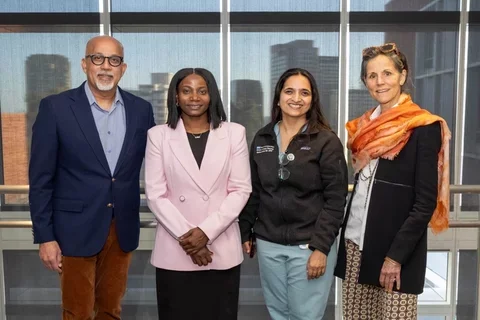Fatou Baldeh’s Story: Transforming Advocacy into Action

Fatou Baldeh is a truly remarkable person. A victim of Female Genital Mutilation (FGM) as a young girl, she tells the story of how she first heard that FGM is a form of sexual and reproductive violence when she was taking coursework on global health as a graduate student. At first, she rejected the premise, so much so that she organized her thesis as an argument against the claim. However, as she studied the problem and reflected on her own lived experience and those of so many women like her in The Gambia, she realized how conditioned her community had become to accepting as a normal “rite of passage” a horrifically violent act. That internal reckoning transformed Fatou and today she is an international champion for ending the practice of FGM. She led the advocacy movement that prevented FGM from being re-legalized in The Gambia. For her tireless and risk-taking efforts, last year (ironically), she was honored by the U.S. State Department as an International Woman of Courage and just this past month, she was honored as one of Time Magazine’s Women of the Year.
I have had the privilege of meeting Fatou now on two occasions and along with Dr. Wendy Slusser and Dr. Aparna Sridhar, who is our featured faculty in this Newsletter, I am thrilled that GHP will be involved with what we hope will be a comprehensive, inter-disciplinary UCLA/DGSOM collaboration to support her efforts to educate the formal and informal health care community in The Gambia about the real harms and health dangers posed by FGM practice. Fatou’s grace for her community is extraordinary – she tells us that it is only through personal connections, through storytelling that is relatable, that we can hope to convince otherwise good people that a common practice must be understood as a form of violence that has for far too long been considered normal. We feel fortunate to be invited to help her continue to bend the arc.
Fatou’s journey from child victim to curious student to international advocate is a powerful reminder that telling and reflecting on stories matters, that caring and acting matters, that despite oftentimes terrible headwinds, our voices retain power that can change its direction, that we can still persist, resist, and occasionally win – because - we remain steadfastly on the right side of moral decency.